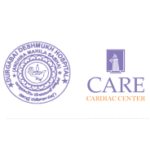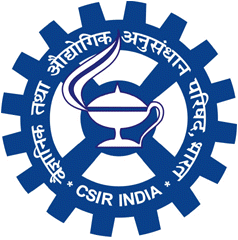Treatments Focus
Genetic Testing and Weakened Immune System

Genetics can play a significant role in determining the strength of an individual’s immune system. The immune system is a complex network of cells, tissues, and molecules that work together to defend the body against harmful pathogens, such as bacteria, viruses, and other foreign invaders. A weakened immune system, also known as immunodeficiency, occurs when the immune system is unable to function properly, leaving the individual more susceptible to infections and diseases.
There are many companies in the market providing genetic testing. GenepowerX located in Hyderabad is one of the pioneers in the field of Genetic Testing.
How genetics can influence the immune system's strength?
Inherited Immune Disorders: Some individuals are born with genetic mutations that affect the development or functioning of certain immune system components. These inherited immune disorders can lead to deficiencies in specific immune cells or molecules, making it harder for the body to effectively fight infections.
Major Histocompatibility Complex (MHC): The MHC, also known as the human leukocyte antigen (HLA) system, is a set of genes responsible for the body’s ability to recognize and distinguish between its own cells and foreign substances. Variations in these genes can impact an individual’s ability to present antigens to the immune system, affecting the immune response and making some people more susceptible to certain infections.
Cytokines and Signaling Molecules: Cytokines are signaling molecules that regulate the immune response. Genetic variations in cytokines can influence their production and effectiveness, potentially leading to an altered immune response and increased susceptibility to infections.
Innate Immune System: The innate immune system is the body’s first line of defense against pathogens. Genetic factors can affect the efficiency of innate immune cells, such as macrophages and natural killer cells, leading to a weakened initial response to infections.
Adaptive Immune System: The adaptive immune system is responsible for the production of antibodies and memory cells that provide long-term protection against specific pathogens. Genetic factors can impact the diversity and effectiveness of immune receptors, affecting the body’s ability to mount a robust and specific immune response to infections.
It is important to note that while genetics can influence the strength of the immune system, environmental factors also play a crucial role. Diet, lifestyle, exposure to infections, and other external factors can interact with genetic predispositions to determine an individual’s overall immune health. Additionally, advances in medical science have provided treatments for certain inherited immune disorders and immune deficiencies, helping individuals lead healthier lives despite genetic challenges. If someone suspects they have a weakened immune system, it’s important to consult with a healthcare professional for proper evaluation and management.
Is Genetic Testing recommended in case of auto immune disorder?
Genetic testing may be suggested in some cases of autoimmune disorders, but it is not always a routine or standard part of diagnosing autoimmune conditions. The decision to undergo genetic testing is typically based on several factors, including the specific autoimmune disorder suspected, the individual’s symptoms and medical history, and the clinical judgment of the healthcare provider.
Here are some scenarios where DNA genetic testing might be considered for autoimmune disorders:
Suspected Hereditary Autoimmune Disorder: Some autoimmune disorders have a known genetic basis and tend to run in families. In such cases, genetic testing may be recommended to identify specific gene mutations associated with the condition. Examples of hereditary autoimmune disorders include familial Mediterranean fever, systemic lupus erythematosus (SLE), and certain types of juvenile idiopathic arthritis.
Uncertain Diagnosis: In certain cases, the symptoms of an autoimmune disorder can overlap with other conditions, making it challenging to arrive at a definitive diagnosis. Genetic testing might be used as an additional tool to help confirm the diagnosis or rule out other potential conditions.
Predicting Disease Progression or Severity: Some genetic markers are associated with the progression or severity of certain autoimmune disorders. Identifying these markers through genetic testing may help healthcare providers predict how the disease might develop in an individual and guide treatment decisions.
Identifying Treatment Options: In some cases, specific genetic factors may influence how an individual responds to certain medications used to treat autoimmune disorders. Genetic testing could help personalize treatment plans and identify the most suitable medications for the individual.
It’s important to note that while genetic testing can provide valuable information, most autoimmune disorders are considered complex, involving a combination of genetic, environmental, and immunological factors. Thus, genetic testing is not always a definitive or stand-alone diagnostic tool for autoimmune disorders.
The decision to undergo genetic testing should always be made in consultation with a healthcare professional who can evaluate an individual’s specific situation and guide them on the most appropriate diagnostic and treatment approaches. Additionally, genetic testing for autoimmune disorders is typically not recommended for individuals without symptoms or a family history of the condition, as the results may not have any clinical significance in such cases.
Immune system and allergies:
Allergic disease is one of the most frequent chronic illnesses worldwide. Individuals with a family history of allergies are more likely to acquire allergic illness. Allergic diseases include hay fever, eczema, hives, asthma, and food allergies. Allergy symptoms can range from minor irritation to a potentially fatal allergic reaction.
Your immune system is where allergic reactions develop. When a person who is allergic to a substance such as dust, fungus, or pollen comes into contact with it, their immune system may overreact by producing antibodies that “attack” the allergen. Breathing heavily, itching, a runny nose, watery or itchy eyes, and other symptoms may occur.
Symptoms of weakened immune system:
High
stress levels
Frequent
colds
Wounds heal
very slowly
Frequent
infections
Feeling tired
all the time
Digestive
problems
Delayed
development
Autoimmune
disorders
Diagnosis and treatment:
Your doctor will check for your personal and family health history. He/ she will also check for your response to certain vaccines, skin tests and other blood tests. Gene testing is also being used in diagnosing many immunodeficiency disorders.
The treatment depends on the kind of symptoms you develop that includes preventing infections, treating existing infections and treating immune deficiency disorders.
FAQ's :
Genes affect how the immune system functions and responds to threats. Immunodeficiency disorders that are present at birth and are frequently passed down through the generations. This means they are linked to genes passed down through the generations.
Research suggests that many immune deficiency disorders are inherited from either one or both the parents and are passed down to next generations.
Yes, people with allergies have weakened immune system. Although allergies do not cause you to catch a cold or flu. But, your allergy therapy keeps you at high risk for developing other diseases.
Allergies are commonly inherited, meaning it can be transferred down through the generations from parents to their children. Having a family history with allergies is one of the main risk factors. However, just because a parent has allergies does not indicate that their children will anyway develop.
The treatment involves collecting stem cells (cells which can develop into many different types of cells in the body) from a patient with immunodeficiency, correcting the gene in the cells, and then returning the corrected stem cells to the patient. Because gene therapy uses the patient’s own cells, there is no need to find a suitable donor. Only a few immunodeficiencies are being treated with this medication.
Related Articles
Book an Appointment to understand how GenepoweRx can help you in treating
Genetic Testing and Weakened Immune System
Meet The Doctors
Dr Kalyan Uppaluri
Dr Hima Challa
Your genetics … Your Test ... Your Health Success
It’s always the word of mouth that’s the best advice. Here are some of our…


Our Partners






Professional Partnerships
Government Association

